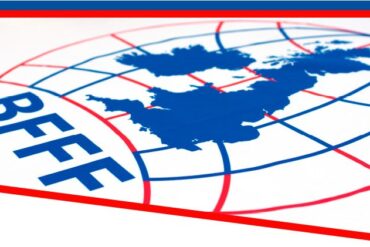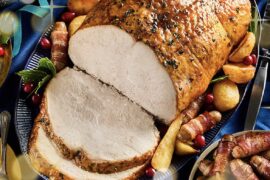The British Frozen Food Federation (BFFF) is warning of more disruption to food supplies following the implementation of new import rules in the United Kingdom on January 1. Richard Harrow, chief executive of the trade association, says new border controls on animal and plant products from the EU could see major delays at ports in the new year.
Starting on the first day of January 2022, importers must make a full customs declaration on goods entering the United Kingdom from the EU or other countries. Traders will no longer be able to delay completing full import customs declarations for up to 175 days, a measure that was introduced to cope with the disruption of Brexit.
“Whilst the new UK rules will be introduced in stages, we are concerned that not enough planning has been done to ensure the new requirements are understood by everyone in the food supply chain,” said Harrow. “A good example of this is a new HMRC process called Goods Vehicle Management System (GVMS). The system is designed to enable HMRC to keep track of loads containing meat and plant products in fast moving roll-on-roll off ports such as Dover.”

The BFFF chief executive added: “The system requires haulage companies to pre-lodge the arrival of a load to the UK before it departs from the EU port of embarkation. Whilst many UK hauliers are well prepared for this change, we suspect many EU hauliers are not.
“Whilst the UK authorities have said they will not stop vehicles that do not complete all the documents correctly, this assumes the EU port will allow a vehicle without the correct paperwork to leave port.”
As the UK imports five times more volume of food than it exports to the EU, the potential for massive delays and food supply issues in January is high.
“We are still finding new elements of the process that our members are unaware of, or lack of clarity on what they need to do to comply with the regulations.” said Harrow. “With only days to go before the new rules, we remain concerned that January could be a fraught month for our members.”

Britain’s Cold Chain Federation (CCF) has voiced concern that speciality food imports could face the same 70% decline that affected exports of food by small businesses this year after Britain left the EU single market and customs union.
In a recent report published by the Guardian, CCF Chief Executive Shane Brennan stated: “The big casualty of these trade barriers is the business that needs to import small and frequent quantities across borders – a pallet load of speciality cheeses or boxes of onion powder. This is the sort of trade that is going to suffer.”
Meanwhile, UK food and drink exports to the European Union declined by 24% during the first nine months of 2021, according to statistics from the Food and Drink Federation.





